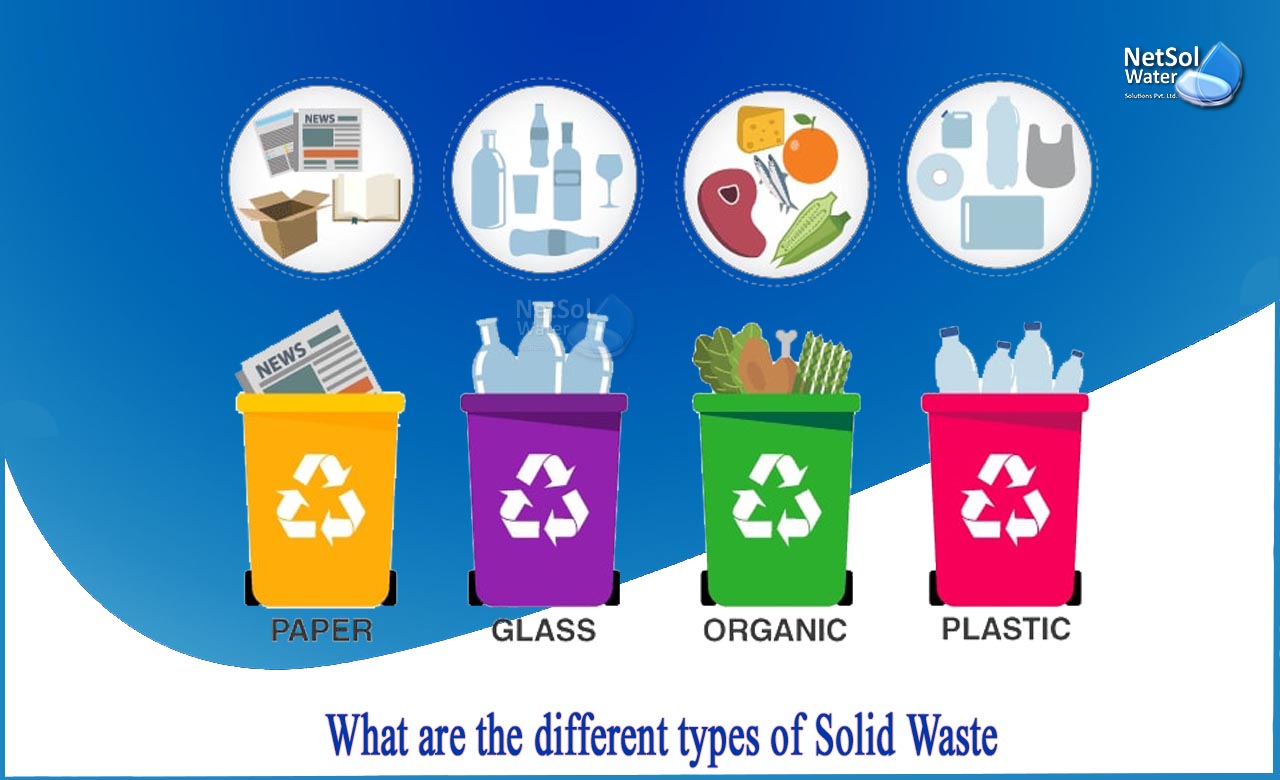What are the different types of Solid Waste?
Solid waste management (SWM) is incredibly essential in our community because it protect our family from the dangerous effects of solid waste. By properly disposing of most of these waste materials, we can safeguard both our loved ones and the environment. Having a community that realizes this value allows us to work together to preserve the ecosystem inside our city. This is important not just for us, but also for our future generations.
Let us have a look on different types of solid waste:
1: Hazardous Waste in the Home
Household hazardous materials can be found in homes, sheds, basements and garages and should be handled and removed with caution. These wastes can be combustible, poisonous, corrosive, or reactive, and handling them incorrectly can be hazardous.
Household hazardous wastes should be handled with caution to avoid personal harm or environmental damage. They should be kept away from youngsters and pets, as well as from heat sources.It is advised that they must be stored in their original containers with the labels intact and, if feasible, sent them to a domestic hazardous waste collection center for disposal.
2: Debris from Construction and Demolition
Building and demolition debris is uncontaminated solid waste generated during the construction, remodelling, repair, and destruction of utilities, structures and roadways, as well as land clearing debris. These types of solid waste are:
- Masonry materials such as bricks, concrete, and stone;
- Rock and soil;
- Timber (including painted, treated and coated wood and wood products);
- Debris from land clearance;
- Plaster, drywall, plumbing fittings, and non-asbestos insulation;
- Shingles and various types of roof coverings;
- Pavement made of asphalt;
- Glass;
- Plastics not sealed in a way that conceals other wastes.
3: Industrial/Commercial Waste
-Industrial waste
Solid waste created by manufacturing or industrial activities is referred to as industrial waste. These procedures may include:
- Fertilizer/agricultural chemicals;
- Inorganic chemicals;
- Electric power generation;
- Manufacture of iron and steel;
- Leather and leather-related items;
- Production of nonferrous metals/foundries;
- Organic substances;
- Manufacture of plastics and resins;
- Pulp and paper;
- Rubber;
- Products made of stone, glass, clay, and concrete;
- Textile production;
- Transportation tools;
- Water purification.
- Liquids such as acids, alkalis, caustics, petroleum (and its derivatives);
- Sludge’s;
- Solidified chemicals, paints or pigments;
-Commercial waste
Solid waste created by stores, offices, restaurants, warehouses, and non-manufacturing activity at industrial sites is referred to as commercial waste.
4: Medical Debris
Regulated medical waste (RMW) is a material created during biological or health care research, manufacture, or testing, such as:
- Animal excrement that is infectious;
- Pathological waste from humans;
- Human blood and blood derivatives;
- Syringes and needles (sharps);
- Stocks and cultures (microbiological materials).
5: Electronic Devices
Computers, CRTs, wireless telephones, electronic keyboards, televisions, printers, monitors, portable digital music players, video cassette recorders, DVD players, Blu-ray disc players, digital video recorders, digital converter boxes, cable or satellite receivers, electronic game consoles, PDAs, facsimile machines, and photocopiers are examples of used electronic equipment’s.
Much of this used electronic equipment includes dangerous metals and compounds, such as lead, mercury, and cadmium, which may be detrimental to the environment. As a result, it is critical that used electronic equipment is appropriately managed, which may include disposal as hazardous waste in some situations.
6: Discarded oil
Used oil is any oil that has been tainted by physical or chemical impurities as a result of use, whether refined from crude or synthetic. Automotive and industrial lubricants, such as used motor oil, hydraulic fluids, refrigeration coolants, metalworking and cutting oils, and electrical insulating oil, are common applications.
Vehicle repair shops, fleet maintenance facilities, industries, non-profit organizations, government agencies, and educational institutions are among the facilities that generate used oil.Private residents who change the oil in their own vehicles, known as "home do-it-yourself oil changers" or DIYs, also create used oil.
What do we have to offer?
We are pleased to introduce ourselves as leading water, wastewater treatment company in India, specializing in the manufacture of WTP, WWTP, ETP, as well as Solid waste management. Netsol Water is a one-stop utility partner for both industrial and commercial clients, helping them improve resource productivity and bottom lines while safeguarding the environment.
Please contact us at +91-9650608473 or drop a mail at enquiry@netsolwater.com for further information or to make a purchase.



